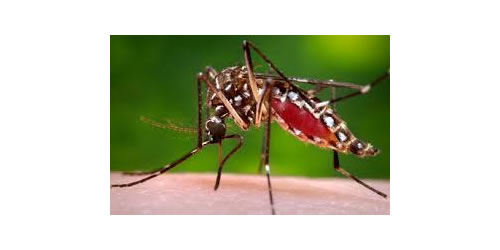Cause of mosquito resistance linked to agric, industrial chemicals

The inappropriate use and disposal of industrial and agricultural chemicals have become the major cause of mosquito resistance in the country.
Professor David Kofi Essuman, the Dean of the School of Physical Sciences of the University of Cape Coast (UCC), who announced this said, “Our improper management of the environment is helping mosquito to build resistance.”
However, he said, keeping the environment clean could save people from malaria.
Prof Essuman, who was addressing a seminar at Cape Coast, said mosquitoes should not be tolerated because they could also cause diseases like Zika and elephantiasis.
The seminar was organised by the UCC Department of Entomology and Wildlife in collaboration with the University’s Branch of the Ghana Science Association (GSA) to commemorate this year’s World Malaria Day. It was on the theme: “End Malaria for Good”. Prof Essuman stated that all kinds of pesticides, including “DDT”, a banned chemical” was still being used on many farms and industries with the residue being washed into lagoons, ponds, rivers and refuse dumps, which were the breeding grounds for the larvae of the anopheles mosquito.
He said despite a number of measures, including the provision of Insecticide Treated Nets (ITNs), intensive public education and the spraying of homes to check the spread of malaria, it still remained a major health problem.
This is because there was no environmental management component in the malaria control programmes.
He called for the inclusion of Environmental Studies in all the educational curricular at all levels, saying, “Everyone should study the environment , in fact it should be a core subject in schools and each student must pass it before he/she moves to the next level.”
Prof Essuman also asked that environmental health officers be given the right roles and provided with the needed support to enable them to work effectively.
Preventive health care should be encouraged instead of curative care, he stated.
Dr James Prah, a Senior Medical Officer at the UCC Hospital, said there had been a reduction in both cases of malaria and malaria-related deaths in the hospital over the past two years.
He said, for instance, in 2014 a total of 14,487 malaria cases were recorded at the facility but that reduced to 13,511 in 2015, representing a 15.8 reduction.
Additionally, in the past two years, malaria had moved from the first to the third disease reported at the Hospital.
He attributed the reduction in cases to the effective use of anti-malaria drugs, the Ministry of Health’s campaign of free distribution of treated nets, indoor residual spraying and the policy to test suspected cases of malaria before treatment.
Dr Prah, however, expressed concern about the low usage of treated nets among families, emphasising that the nets must be used be used properly to make them effective.
Speaking on “End Malaria for Good: Is Ghana Ready”, Dr Andreas Kudom, the Head of Department of Entomology and Wildlife, said the eradication of malaria required political commitment.
Mr Kweku Ricketts -Hagan, the Central Regional Minister, in a speech read for him, said the reduction in malaria cases was commendable, but the disease remained a public health issue in the Region.
He said the Government was committed to eradicating malaria and asked for the effective monitoring and evaluation of the various policies and programmes to control the disease.
Professor Samuel Yeboah Mensah, the Provost of the College of Agriculture and Natural Sciences of UCC, said the time had come for Ghana to start researching for a vaccine against Malaria.
In the 21st Century, no one should be allowed to die of malaria, which was a preventable disease, he said.
He noted that some countries had been able to eradicate it for good and Ghana could also do the same if people changed their attitude by taking preventive measures instead of curative measures.
Source: GNA





